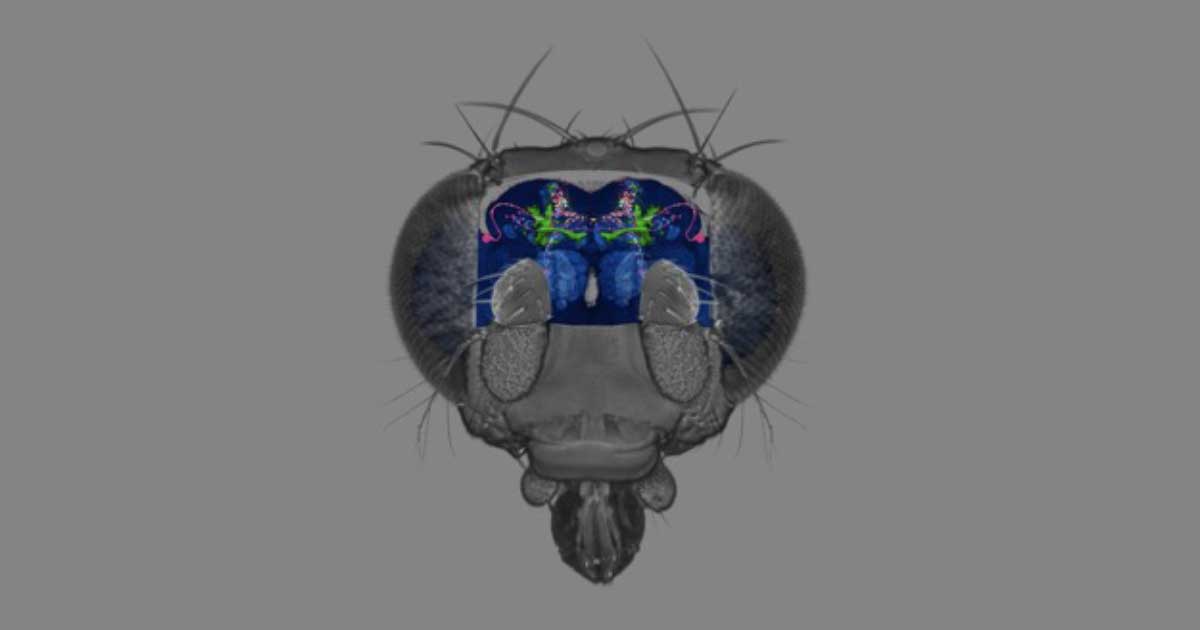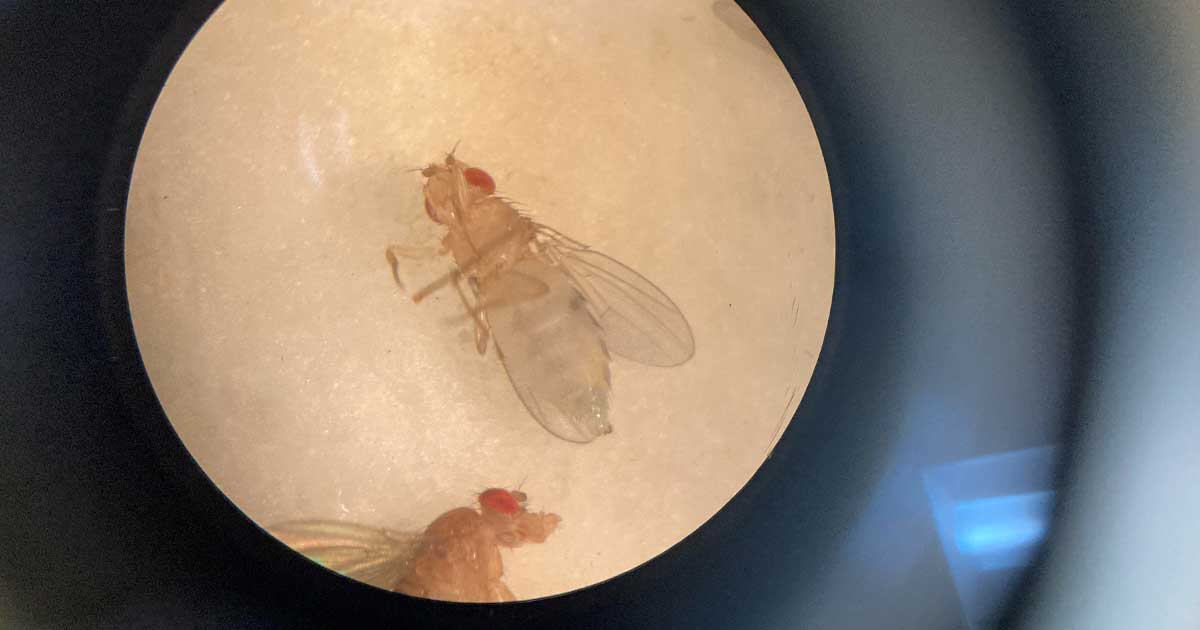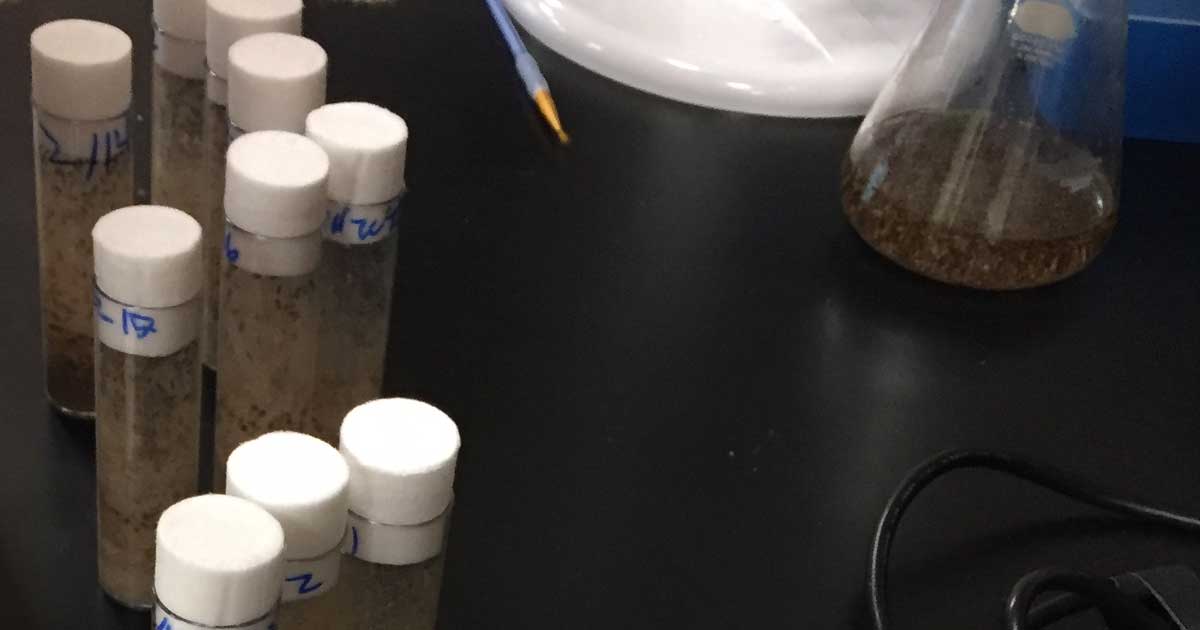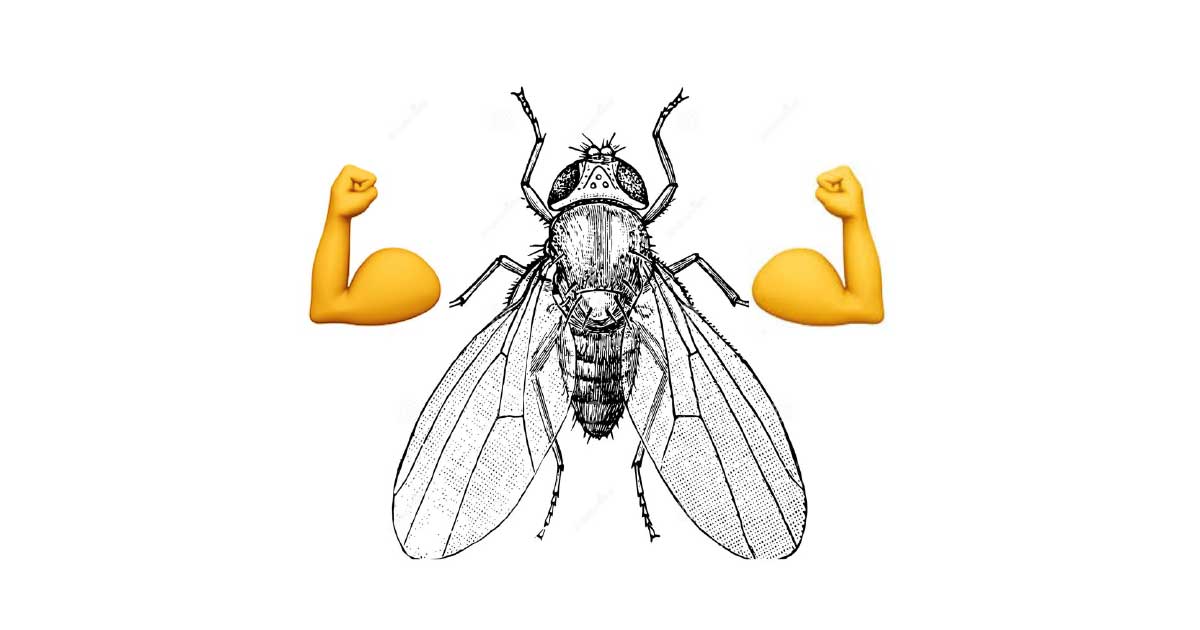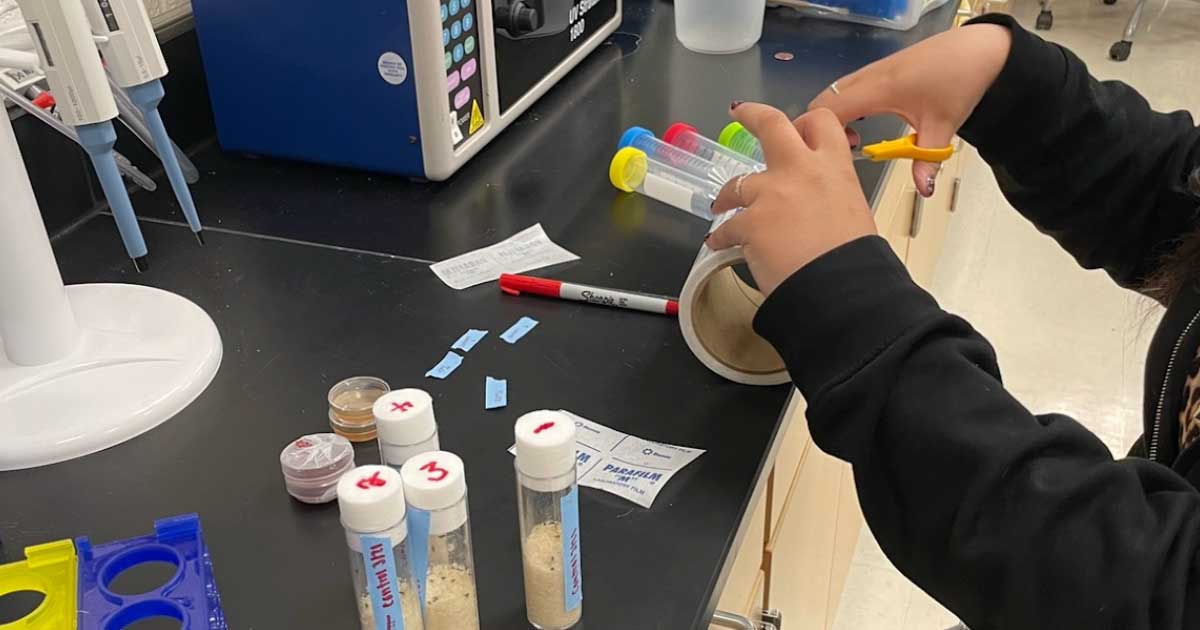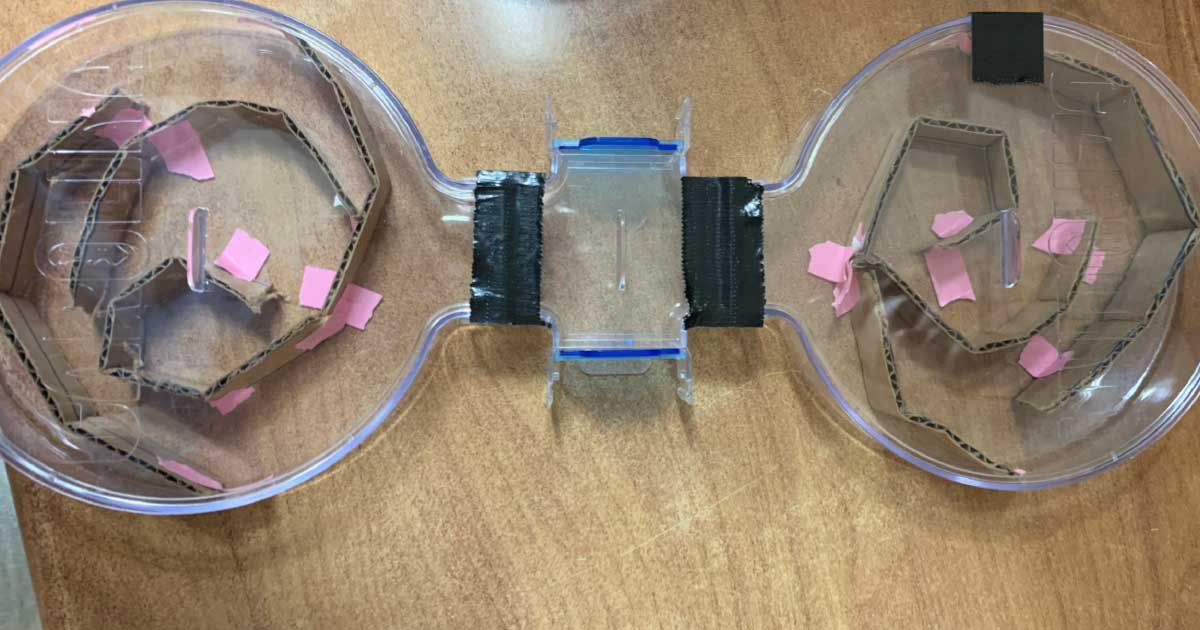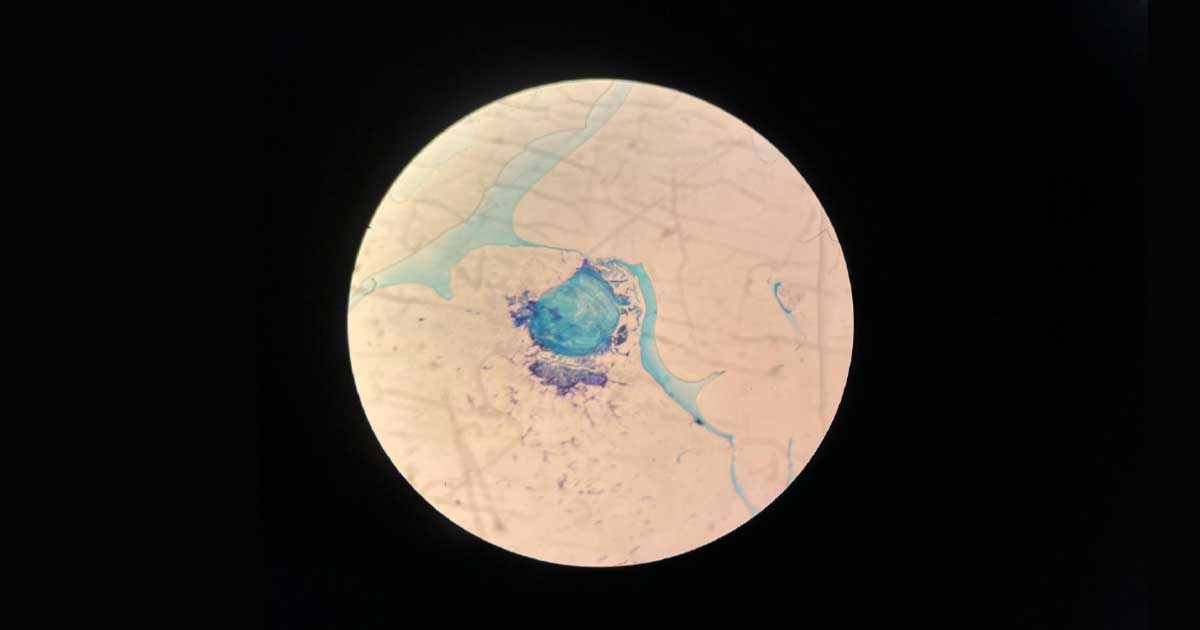By: Josh Nydick
My experiment was a little all over the place at the beginning of it all, as I started with three group members until one decided to switch to all virtual. This left me with myself and one other person who then became inattentive and didn’t show up to class. This was a problem because, in our original experiment, we were going to test the effects of ashwagandha root on the cognitive ability of flies. Still, since the partner that was supposed to bring it in did not, I had to swiftly switch my experiment to caffeine on the cognitive function of flies. The caffeine to feed the flies came in 200 mg capsules. Of course, I couldn’t just provide them a whole capsule because that would kill them; so I took one capsule and mixed it with 100 ml of water, and then filled another cup up with 97 ml of water and put 3 ml of our solution in there to make a 3% caffeine solution. I then filled the five tubes of flies’ food with the caffeine solution and let them eat it over the weekend, and when I came back, there were very noticeable changes in behavior.

The Behavioral Change and Cognitive Function Differences
When I came back, I could see an apparent change in how they were interacting with each other and their environment. The normal flies tend to sit on the roof of their capsule and just chill out; these newly caffeinated flies would not sit still; they sporadically jumped around from one side to the other, from top to bottom of the container. They were restless. Since I was testing their cognitive function, I decided to put them in a maze to test their problem-solving skills and memory specifically. I would put the same group of flies in more than once, the first time to see problem-solving and the second and third to see memory. I found that the caffeine flies tended always to have the faster time. Still, it was because they were constantly moving and energized because the normal flies learned the mazes and were able to maneuver through quicker when compared to their original times.
Application to Real Life
So why does this matter? If we can see what this caffeine is doing to flies, is there any correlation to human consumption of caffeine? The answer to that question is yes. While caffeine makes us energized, we’re often distracted and puzzled about where and when we will get our next dose of adrenaline. So is caffeine bad for human consumption? No, caffeine in moderation isn’t bad as long as it’s controlled and too much isn’t consumed. It becomes bad for you once too much is consumed. Always be careful of the things you put in your body because you never know the effect(s) it can have on you in many, many different ways.

